Coronavirus: Extra 5,000 beds to cope with Wales winter wave
- Published
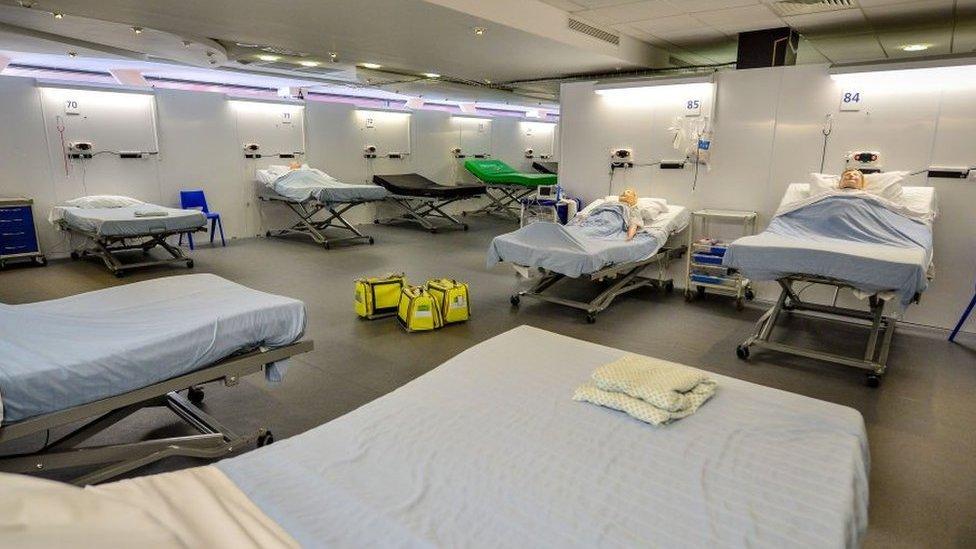
Extra beds, like the ones provided at a field hospital in the centre of Cardiff, will now be provided at a temporary unit on the site of the city's main hospital
There will be an extra 5,000 NHS beds - half in field hospitals - to cope with winter pressures, including a potential second wave of Covid-19 in hospitals.
Unveiling the winter plan for NHS Wales, Health Minister Vaughan Gething said it was "expected to be our most difficult yet".
The extra capacity is to deal with a worst-case scenario.
Meanwhile, the flu vaccine will be available to both people shielding and their families.
NHS Wales said without action taken in March, there could have been 100,000 hospital admissions as well as "very significant numbers of deaths".
Chief executive Dr Andrew Goodall said: "If there's a second peak, we have to have the NHS capacity in place."
What about field hospitals?
Further details of the future pattern of field hospitals will be announced later.
The network was set up originally to provide an extra 6,000 beds to cope with a worst-case scenario.
For this winter, it will involve keeping in place some of those 17 field hospitals already in place while allowing others judged surplus to requirements to revert back to their former uses.
It has already been announced that the Principality Stadium in Cardiff, which has been equipped with 2,000 beds, will be decommissioned, with a £33m 400-bed unit instead built on the University Hospital of Wales site.
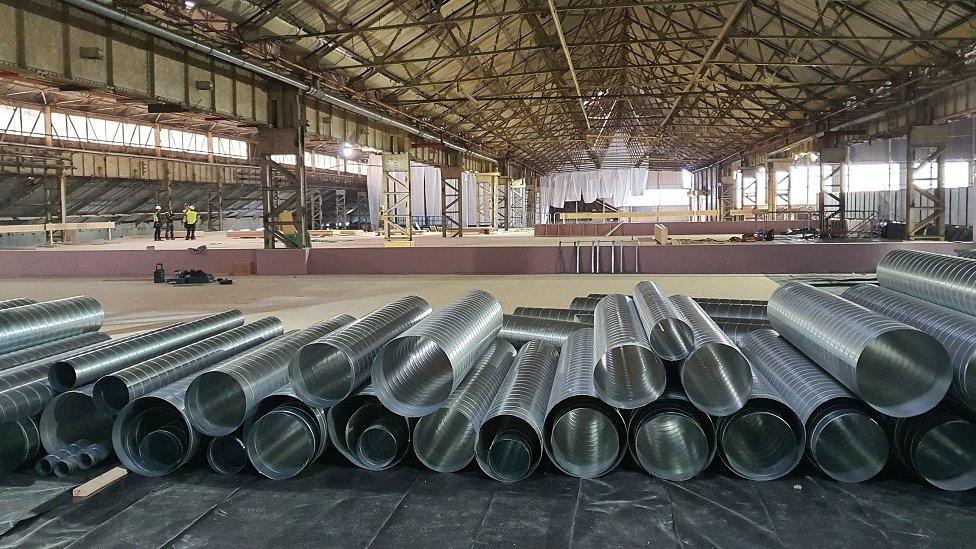
The Swansea Bay field hospital being fitted out
The Bay Studios field hospital in Swansea will be kept on and its extra beds will also be available to neighbouring health boards if needed.
Other hospitals could get temporary facilities on site.
Mr Gething said: "Sadly, many people have lost loved ones as a result of Covid-19. Preventing more families from experiencing such tragedy is paramount in our planning and decision making."
He said the health service must remain vigilant, with services being able to respond "quickly and flexibly to changing circumstances".
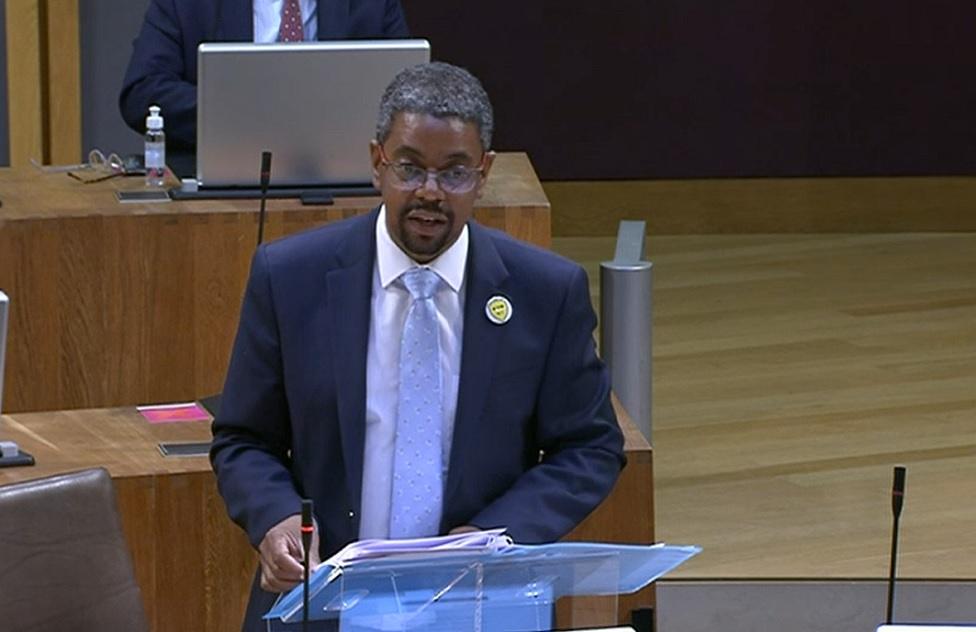
Vaughan Gething said decisions were informed by scientific evidence
What about care homes?
Mr Gething said: "We will continue to provide support and protection to staff and residents so that we can avoid, if at all possible, having to take the drastic measures that were needed in March."
The plans also say while local lockdowns might restrict access, health and social services "must do what we can to encourage and be creative in how we use other forms of communication so that families can keep in touch".
What about vaccinations?
A 75% target has been set for flu vaccinations of those at risk, as well as health and social workers.
If and when Covid-19 vaccine becomes available, NHS Wales said mechanisms were in place to roll it out from as early as November - which would involve different NHS staff in different settings.
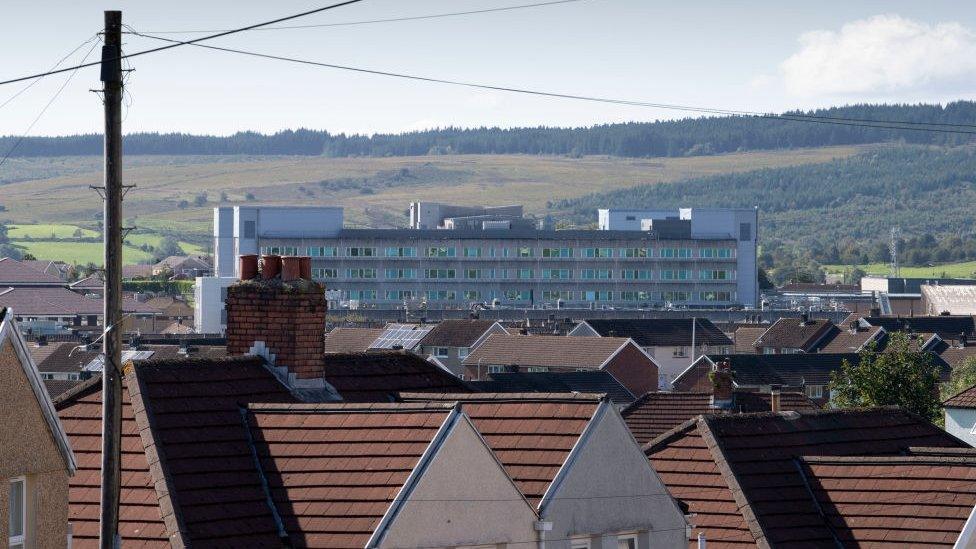
Prince Charles Hospital, in Merthyr, an area with one of the highest infection rates in Wales
What about other treatments?
NHS Wales also wants to ensure there are segregated areas so normal treatment can continue - but it is recognised if a second wave of Covid-19 and other winter pressures came together, then routine treatment may have to be put on hold.
"Our 999 calls are pretty much back to normal and A&E and emergency admissions are returning to normal levels of activity, and primary care very busy," said Dr Goodall.
He said there was still concern over essential services such as cancer and other patients on waiting lists.
"Cancer was an area that we prioritised all the way through," he said.
"We were worried when referrals dropped down by about 60% early on. But referrals have recovered to levels higher than I would normally expect to see.
"But cancer treatment activity is still a bit lower than I would expect to see. We need to make sure we work through a plan to deal with people on waiting lists."
What has been the response?
The NHS Confederation in Wales, which represents health boards, called on the public to help keep Covid-19 cases under control.
"If we behave responsibly and take sensible steps to mitigate the spread of disease, we can protect the NHS and save lives again," said director Darren Hughes.
"Please do not go to A&E departments as a first port of call, you could be putting other patients and staff at risk. You should only use A&E departments in an emergency."
Conservative health spokesman Andrew RT Davies said it was critically important to address the backlog of waiting times: "It's important that the public can have confidence that some of these waiting times will be eaten into."
Plaid Cymru health spokesman Rhun ap Iorwerth said people needed to know lessons had been learnt from some of the mistakes made early on, while the issues around testing capacity needed to be addressed to ensure problems were not an issue over the coming weeks and months.
Brexit Party MS Mandy Jones said one of her biggest worries was over extra cancer deaths because of Covid-19 and also the effect on diagnostic services, with more patients being referred.
- Published21 September 2020
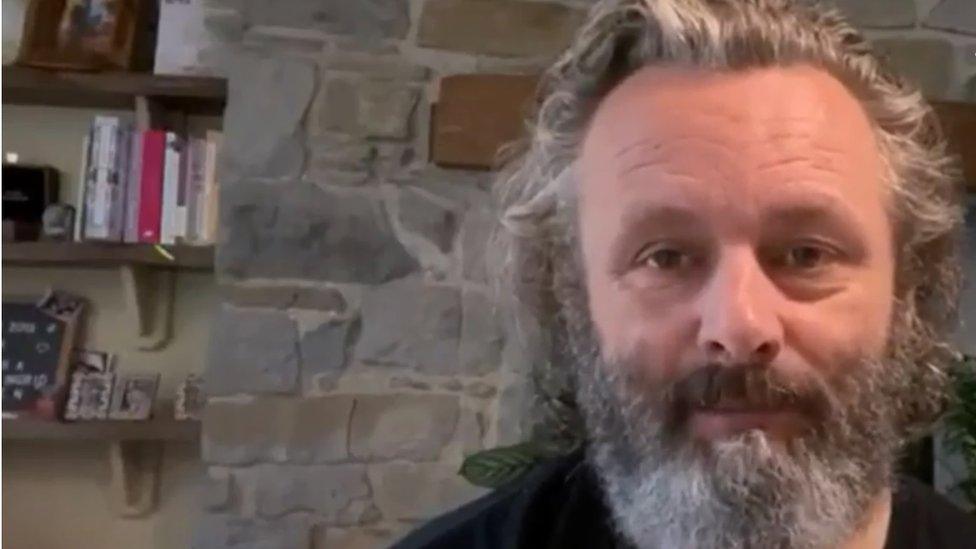
- Published14 September 2020
